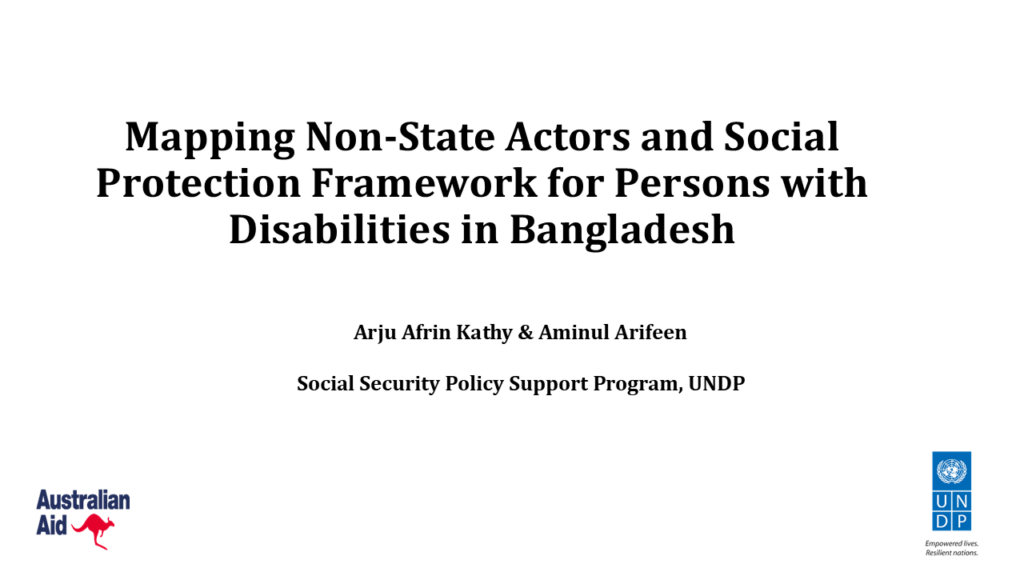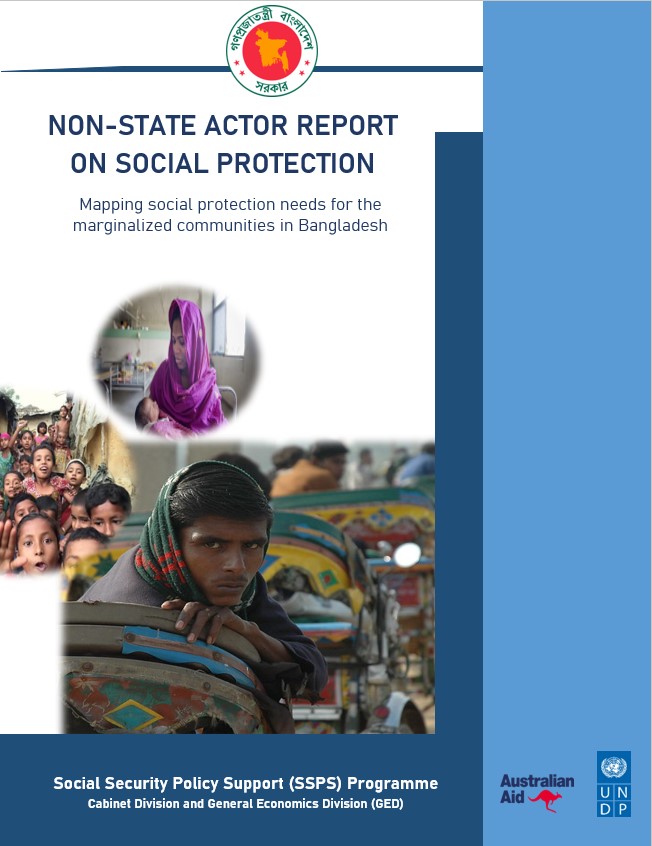Presenter: Mr. Aminul Arifeen, Programme Manager, SSPS Programme, UNDP
The Non-State Actors Report on Social Protection: Mapping Social Protection for Marginalized Communities in Bangladesh provides a comprehensive analysis of the social protection landscape, with a focus on the unique vulnerabilities of marginalized groups. Despite Bangladesh’s notable economic progress, women, children, ethnic minorities, persons with disabilities, remote populations, and other disadvantaged groups continue to face systemic exclusion and multiple socio-economic risks. The study identifies eleven categories of marginalization—including socio-economic status, ethnicity, disability, age, migration, occupation, geography, and climate vulnerability—highlighting the intersectional nature of disadvantage.






